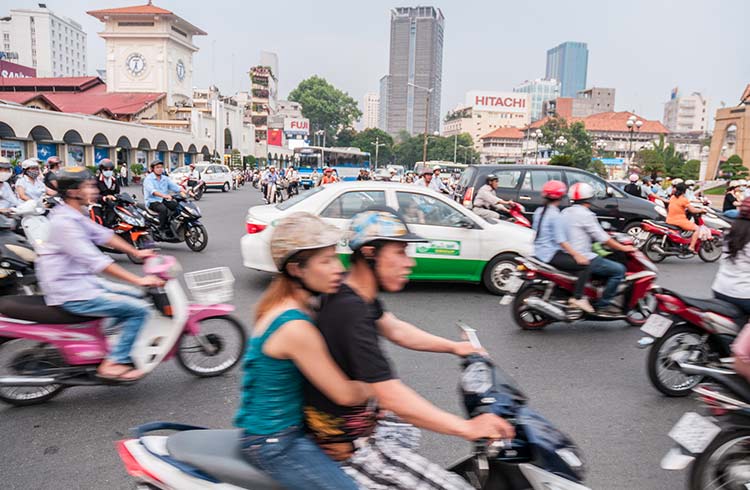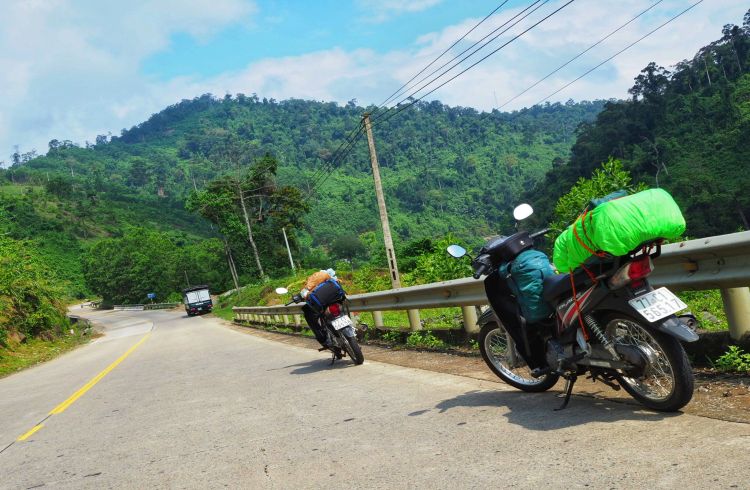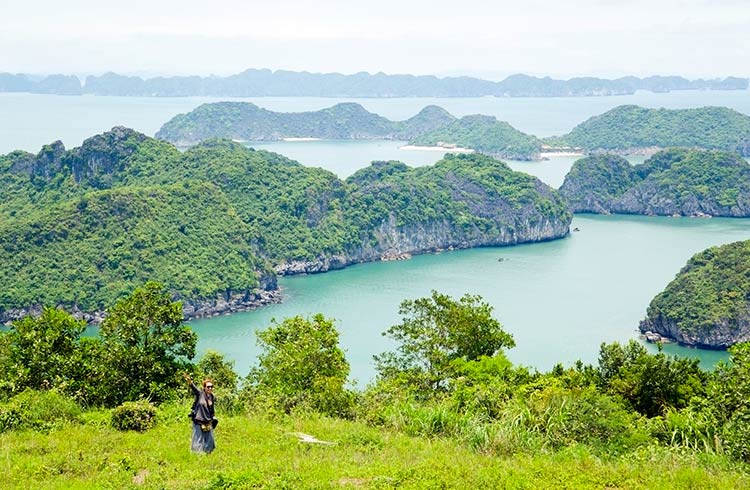Local Laws and Customs in Vietnam: Know Before You Go
Antiques, drugs, road rules and visas are just some of the things that can get you into trouble in Vietnam.
 Photo © iStock/tbradford
Photo © iStock/tbradford
Vietnam is so incredible that I’ve visited more than a dozen times. To avoid catastrophe on your trip, you need to understand some of its key laws and customs.
- Beware Vietnam's visa rules
- Vietnam's road laws are strict
- Reject tobacco pipes
- Vietnam's drug laws are a minefield
- Buying antiques in Vietnam is risky
Beware Vietnam's visa rules
Travelers visiting Vietnam should be aware of the country’s somewhat confusing visa requirements. Citizens of certain countries can enter Vietnam visa-free for short stays, usually between 15 and 45 days. Most travelers can apply for an e-visa online, valid for up to 90 days, with single or multiple entries. Visa on arrival is no longer the standard option, so applying online before departure is recommended. For longer stays, business visas, work permits, and residency programs—including the upcoming “Golden Visa” for investors and professionals—offer extended options. Visitors must have a passport valid for at least six months beyond their departure date and may need to provide proof of onward travel and sufficient funds.
Another word of warning – do not believe the Government EVisa website when it says your application will be approved within three working days. I know someone who had to cancel a trip to Vietnam at the last minute because their application took four times longer than that to be processed.
Vietnam's road laws are strict
Many tourists make the mistake of assuming that, because they have a driver’s license or motorbike permit from back home, they are allowed to take to Vietnam’s roads. In nearby Thailand, for example, I have driven many times and have had Thai police check and then give the thumbs up to my International Drivers’ Permit. But in Vietnam, all motorists must have a Vietnamese license.
This leaves you with two options. Firstly, I would recommend you just use taxis, avoid motorbikes entirely, and hire a car with a local driver if you want to take lengthy day trips, or venture deep into the countryside. Secondly, and this is tricky, if you badly want to self-drive or motorbike through Vietnam, you need to go through the steps of getting a local license. That process is far too complicated for me to explain here.
If you are going to Hanoi, be aware that there are strong efforts to ban fossil fuel motorbikes there in an attempt to clean the air. This big change is being phased in starting in 2026 and will dramatically change traffic patterns in that city.
If you choose to ride consider travel insurance and be sure to comply with its requirements, such as riding with a helmet and being appropriately licensed to ride in your home country at your destination.
Say no to Vapes and reject tobacco pipes
As of 2025, the use, sale or import of vapes are banned for public health reasons. Tourists may face fines if caught using one or bringing one into the country.
While tobacco pipes are still legal, I urge you to give it a pass. Vietnamese people are very welcoming, and it’s not uncommon for them to invite tourists to join them in smoking from a bamboo pipe. It is a popular custom across Vietnam to blaze tobacco in a Dieu Cay, a long, wide wooden device about 60cm in length.
This practice is particularly common after a meal, as some Vietnamese people believe it can aid in digesting food. I think many smokers there also appreciate the headrush that accompanies inhaling the smoke from this tobacco, which was far too potent for me.
The first time I used a Dieu Cay, the tsunami of fumes that flowed into my lungs made me keel over inside my local guide’s home, in the mountain town of Sapa. As I lay on the ground, my vision blurred and balance absent, I feared I had just been deliberately drugged.
When finally I regained my equilibrium, my guide apologized profusely and told me I’d inhaled too deeply. A few years later, after one too many beers, I again accepted a Dieu Cay offered to me in Hanoi. This time I smoked it while sitting. Even still, it caused me to fall on my side and knock over a table. Take it from me, if you’re handed a Dieu Cay, just politely decline.
Vietnam's drug laws are a minefield
In 2022, Thailand shocked the world when this famously tough-on-drugs country legalized recreational marijuana use, resulting in weed shops opening up all over the nation. Nearby Vietnam, meanwhile, has a very confusing approach to cannabis use.
In Vietnam, this drug has the same legal classification as much stronger substances such as cocaine and heroin. People caught in possession of marijuana can face lengthy prison sentences. Yet Singapore’s venerable Straits Times newspaper reported in 2022 that, in reality, police normally give warnings or fines to those they found with small quantities of cannabis.
They are not, however, anywhere near as lenient when it comes to harder drugs, such as narcotics and amphetamines. Possession of those substances will very likely land you in jail, and Vietnam even has the death penalty for serious drug offenses. In 2021, there were 93 death sentences given to drug offenders in Vietnam, according to Amnesty International. Really, it’s simple: do not touch drugs in Vietnam.
Buying antiques in Vietnam is risky
I nearly made the error of buying an antique to bring home from Vietnam. While wandering Le Cong Kieu antique street, near Ho Chi Minh City’s tourist magnet Ben Thanh Market, I saw a delicately-painted porcelain bowl that would be a perfect gift for my mother.
What I didn’t know was that, if I had taken that gift to the airport, it may well have been seized by Vietnam’s Customs Department. Because Vietnamese laws forbid the export of antiques that have originated in this country.
They will only allow you to leave Vietnam with antiques that were imported into Vietnam from another country. And even then, they have to be registered with the Vietnamese government to be legally exported. Long story short, forget buying any of those beautiful antiques and just browse instead.
Related articles
Simple and flexible travel insurance
You can buy at home or while traveling, and claim online from anywhere in the world. With 150+ adventure activities covered and 24/7 emergency assistance.
Get a quote


9 Comments